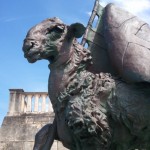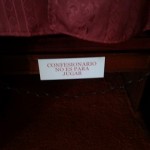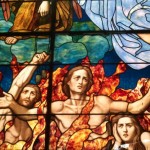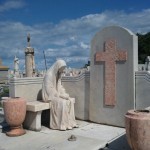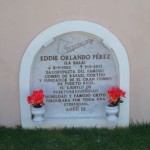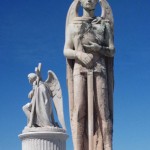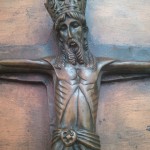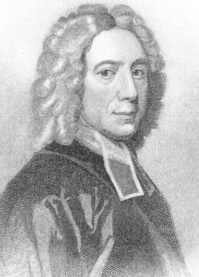Accept those whose faith is weak, without quarreling over disputable matters. One person’s faith allows them to eat everything, but another person, whose faith is weak, eats only vegetables. The one who eats everything must not treat with contempt the one who does not, and the one who does not eat everything must not judge the one who does, for God has accepted that person. Who are you to judge someone else’s servant? To their own master they stand or fall. And they will stand, for the Lord is able to make them stand.
Some consider one day more sacred than another; others consider every day alike. Everyone should be fully convinced in their own mind. Those who regard one day as special do so to the Lord. Those who eat meat do so to the Lord, for they give thanks to God; and those who abstain do so to the Lord and give thanks to God. For we do not live to ourselves alone and we do not die to ourselves alone. If we live, we live to the Lord; and if we die, we die to the Lord. So, whether we live or die, we belong to the Lord. For this very reason, Christ died and returned to life so that he might be the Lord of both the dead and the living. You, then, why do you judge your brother or sister? Or why do you treat your brother or sister with contempt? For we will all stand before God’s judgment seat.
Romans 14: 1-10, Today’s New International Version
Denominational wisdom from Romans.



